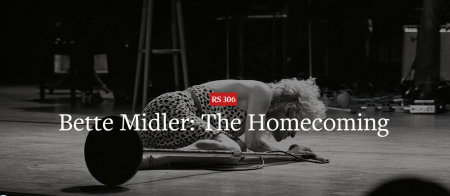Blytheville Courier News
November 20, 1979
A new movie called “The Rose,” starring Bette Midler, has just been released. It promises to be one of the big box office successes of the year. It is the story of a female rock singer – modeled after the later Janis Joplin – whose self-destructive life ends with her death onstage in front of thousands of screaming fans. The advertisements for the movie read, “She gave., and gave.. and gave. Until she had nothing left to give. ”
What utter swill. Once again we are being asked to feel sympathy and sorrow at the image of a wealthy rock star who finds life at the top too much to lake. Although “The Rose ” is fictional, its message is aimed at audiences who identify with real-life rock stars – such as Joplin – who attain enormous riches and popularity, and then can”t live with it. In the movie, and in real life, we are never told why these stars are to deserve our sympathy – merely that there is such pain at the top, and our hearts should go out to them.
They deserve nothing from us, and certainly not our sorrow.
Rock idols are the most pampered, self-indulgent, overly esteemed fabrications of the 20th century, “She gave,..and gave ..and iave.” They give nothing. They are takers, living in limouflinn and luxury suites and California mansions. Their effortless and indolent lives have nothing to do with the lives of the people who pay for their concert tickets and albums – and yet not only are those fans expected to believe that the rockers are tortured geniuses living in excruciating torment; they actually DO believe it.
For several years in the ’70s I spent a considerable amount of time on rock tours, writing stories about life on the road. For one long stretch of time, while I was doing research for a book, I joined a band that was currently the top concert draw in the world, as a performing member. And what I saw up-close was a netherworld made up of simpering children in their 20s and 30s, so spoiled by the success of rock stardom that they did not even wear watches, because someone was always there to tell them what time it was; did not even know how to write checks, because someone was always there to pay for everything they needed; did not even know where they were going during the course of a day, because someone was always there to instruct the limo drivers.
And, perhaps worst of all, they believed that they deserved all this. The rock idols, generally, are among the least talented of people making a living in the public eye; one young millionaire admitted to me that he wrote the songs for his platinum albums while watching the daytime game shows on TV, and that he usually produced an album’s worth of hits during the course of a single afternoon. And yet these stars have come to feel that they truly are special, that they live in a world different than the rest of ours because they have some vision, some gift, that makes them the worthy recipients of fabulous amounts of money and powerful drugs and beautiful mansions and willing sexual partners of both genders.
If they can get away with it, fine. But the line should be drawn at something like “The Rose.” The movie perpetuates the rock propaganda that not only do these people live in greater luxury than the rest of us , . , they also feel greater pain, and as their fans we should share this pain and grant them our empathy and sorrow, Life at the top of the rock world is a tragedy, we are told, and we owe it to these rockers to understand the terrible suffering they are going through, “She gave,,.and gave..,and gave. Until she had nothing left to give ” As I type this column, the lady who cleans my office has just come in to empty the wattebasket. She arrives «t work every night when it is dark, and she leaves after midnight when it is still dark. She does difficult physical labor every evening of her life; she takes a long and sometimes dangerous bus ride to and from work. Noone notices her; no one even says hello to her most of the time.
No one would ever think to say of this lady, “She gave,,,and gave , and gave. Until she had nothing left to give,” No one, of course, would ever think to make a movie of her life. And yet she is worth a thousand Bette Midlers or Janis Joplins; she does give, and will continue giving until there really is nothing left.
That movie wouldn’t sell a dozen tickets. “The Rose,” though, is headed to the top of the Variety box office listings because for some reason we are ready to share our sympathy with wealthy superstars who have done nothing to earn it. The great irony, of course, is that many of these very stars have nothing but contempt for the audiences who pay for their mansions and private jets. You out there – the people who buy the tickets and the records, the people who fill the concert halls, the people who will be moved by the story of “The Rose” – are seen by the stars as an endless sea of suckers.
And you are.








